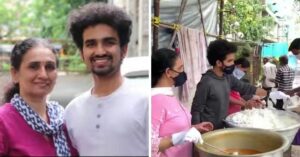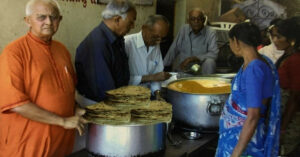When Nobody Cared, This Org Fed & Helped Over 3,000 Families of Ragpickers
“We were not able to step out from our sheds as policemen were threatening to beat us if we were found outside. My family of eight was in dire need of help, but why would anyone look at us? What identity did we have in society? We had thought that no help would be offered to us.”
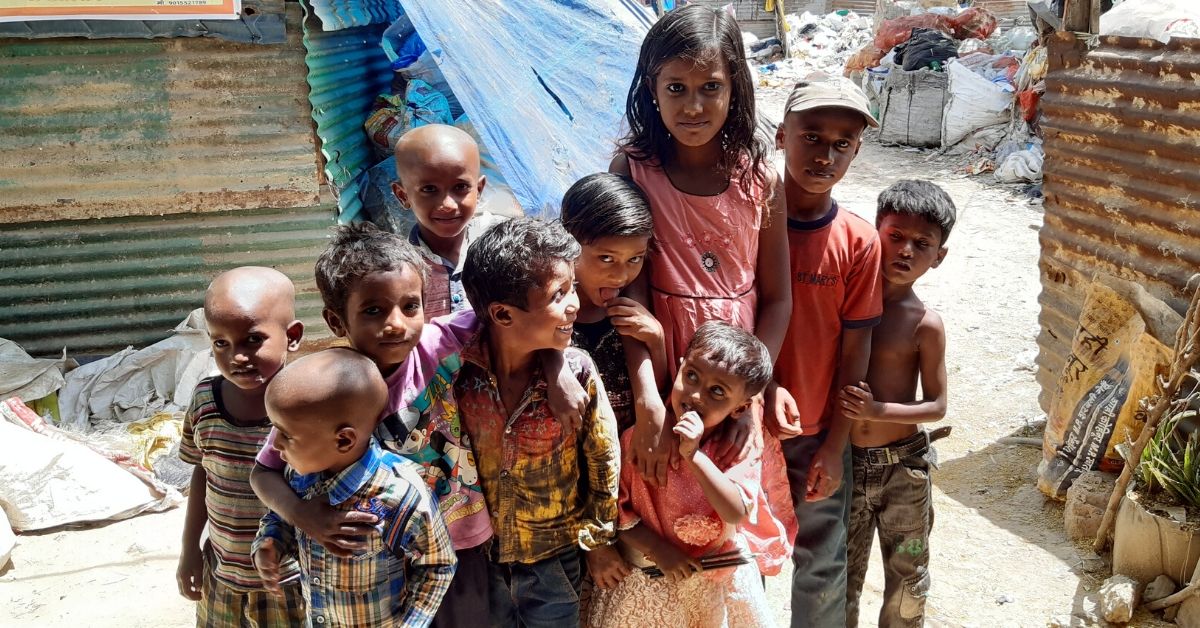
While many of us have resorted to Zoom and Skype to maintain continuity in our work, the pandemic has turned out to be a curse for the poor and the marginalised. Ragpickers, especially, hardly received any support or compassion, even though they recycle almost 20 percent of the country’s urban solid waste and keep cities clean.
In this trying time, the Noida-based Atmashakti Trust, offered a ray of hope. The non-profit works towards the rights and entitlements of the marginalised communities in Odisha and Uttar Pradesh, and led the path on disaster response to ensure last-mile services in a society where inequality is pervasive.
Founded in 1995, Atmashakti Trust has been working in Odisha and Uttar Pradesh to create awareness in constitutional rights and entitlements amongst the most marginalised rural communities with an emphasis on Tribals and Dalits. It facilitates the formation of local-level Sangathans, who take up a range of issues such as Education, Health, Water and Sanitation, Natural farming, Training and capacity building.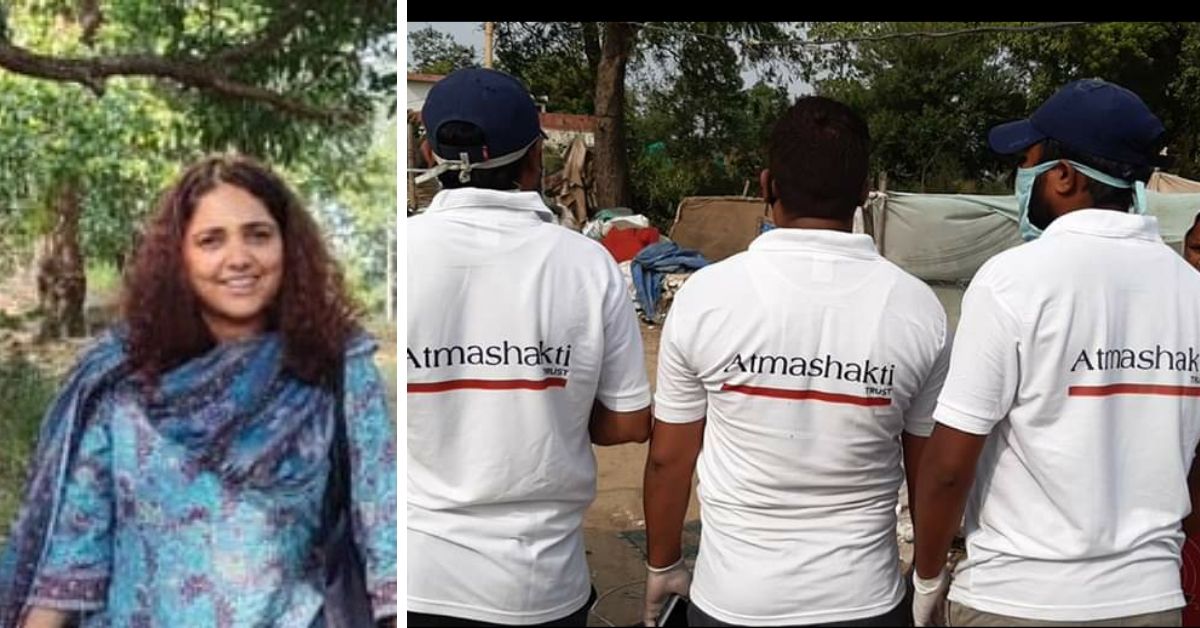
The complete lockdown for containing the spread of the coronavirus left lakhs of industrial, domestic and daily wagers everywhere in the country without work, money, and even access to food.
“Those of us in Noida and Ghaziabad, Uttar Pradesh and Gurgaon, Haryana, stepped up to draw from our limited resources to save affected families around us from starvation. We called it ‘MissionRahat’, and aimed to support them with dry rations and cooked food to tide over the worst phase of the lockdown and the side-effects of the pandemic,” says Ruchi Kashyap, Executive Trustee of the organisation.
Due to the announcement of lockdown at short notice, another sector, the ragpickers, had minimal scope to save food and other basic needs.
“Our society has not yet prepared to give ragpickers the space they deserve. Therefore, we decided to work for these communities to bring back their identity for which they suffer every day,” adds Kashyap.
“The lockdown wrecked our lives. We were stuck in our sheds without work and access to food as we could not move out of our houses,” says Khusbu, a ragpicker from Bhapura slum of Ghaziabad, Uttar Pradesh.
Ten years ago, Khusbu and her husband left Darbhanga in Bihar to Ghaziabad in UP for work and a better life. But fortune did not smile on them. Instability and unavailability of their preferred jobs pushed them towards ragpicking.
“I could not believe it when I received a bag of dry rations from the volunteers of the organisation. It was more than I had expected. We had knocked several doors for help but were unsuccessful. Because of the timely help rendered by Atmashakti, we no longer fear for hunger,” informs Khusbu.
Kohinoor Bibi, 45, is another ragpicker from the Seemapuri slum in North-east Delhi. She lives with her husband and six children.
She says, “We were not able to step out from our sheds as policemen were threatening to beat us if we were found outside. My family of eight was in dire need of help, but why would anyone look at us? What identity did we have in society? We had thought that no help would be offered to us.”
But in their hour of crisis, help came to them.
She continues, “Atmashakti provided that crucial help. They gave us six weeks of rations, which reduced our burden. Ragpicking is the only job that gives us money to run our families. We earn on a daily basis and our income is dependent on the number of rags we collect every day. The lockdown cost us heavily.”
Atmashakti Trust distributed dry rations to over 3,000 ragpicker families that included 20 kg of Rice/Flour, 2 kg of Dal, 1 litre of edible oil, and one packet of salt.
“The plight of the ragpickers is at the crux of the snags, unlike other informal workers. As we began our COVID-19 relief response, we realised that they were the most vulnerable communities. However, it was not an easy task. We got in touch with the District administration of Ghaziabad to support more than 2,000 ragpicker families in Uttar Pradesh,” says Ruchi Kashyap, Executive Trustee of Atmashakti Trust.
Battling life and death
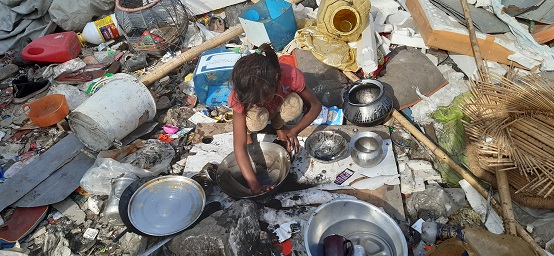
Often considered as the primary foot-soldiers in collecting, sorting, and managing the large chunk of garbage generated in cities like Delhi, Noida, and Ghaziabad, everybody turned a deaf ear to their misery.
“The earnings of ragpickers depends on how much waste they collect each day. They do not have a choice to earn a daily fixed wage. That puts them in a vulnerable position as they cannot save money and food for the future. At the same time, factories and manufacturing companies were closed due to the lockdown, which was the only source of their daily earnings. So, their future was uncertain,” states Kashyap.
Kiran Devi, 54, lives in a jhuggi near Bhapura slum in Ghaziabad. Like others, lockdown also had the worst-ever effect on her family. With her husband mostly unwell, she had to shoulder the family’s responsibility.
“Though we have been staying here for the last ten years, we are consistently being denied an Aadhaar card or a Ration Card here. Not having these documents is depriving us of access to government benefits. Where will we go? But thanks to Atmashakti, we survived,” says Kiran.
Though ragpickers are estimated to be between 1.5 million to 4 million in the country, their contribution to our economic activity is worth about ₹3200 crores. And yet, they continue to struggle for their identity and survival. We leave no reason to offer them the poorest position in our societies.
“Their crisis cannot be solved unless there is a consistent effort to give back their lost identity. We all have to do our part to change their public perception. Atmashakti’s humanitarian response has planted seeds of hope for many,” says Balicharan, a social worker, He was coordinating the organisation’s response programme in Noida and other parts of Uttar Pradesh during the lockdown.
He elaborates the COVID-19 response strategy:
1. Using the public distribution network: In Loni, Ghaziabad, Uttar Pradesh, most areas were under the contaminated zones. Using the Public Distribution Channel, they reached 8,000 distressed families in 36 wards, who were non-ration cardholders and deprived of essential rations.
2.Coordinated mechanism with NGOs/Solidarity groups: Solidarity networks in Delhi/NCR helped administer relief work by identifying genuine needs and avoiding duplication.
3.Coordination with the local administration: They collaborated with the local administration to extend the reach of intervention.
Discrimination at its worst
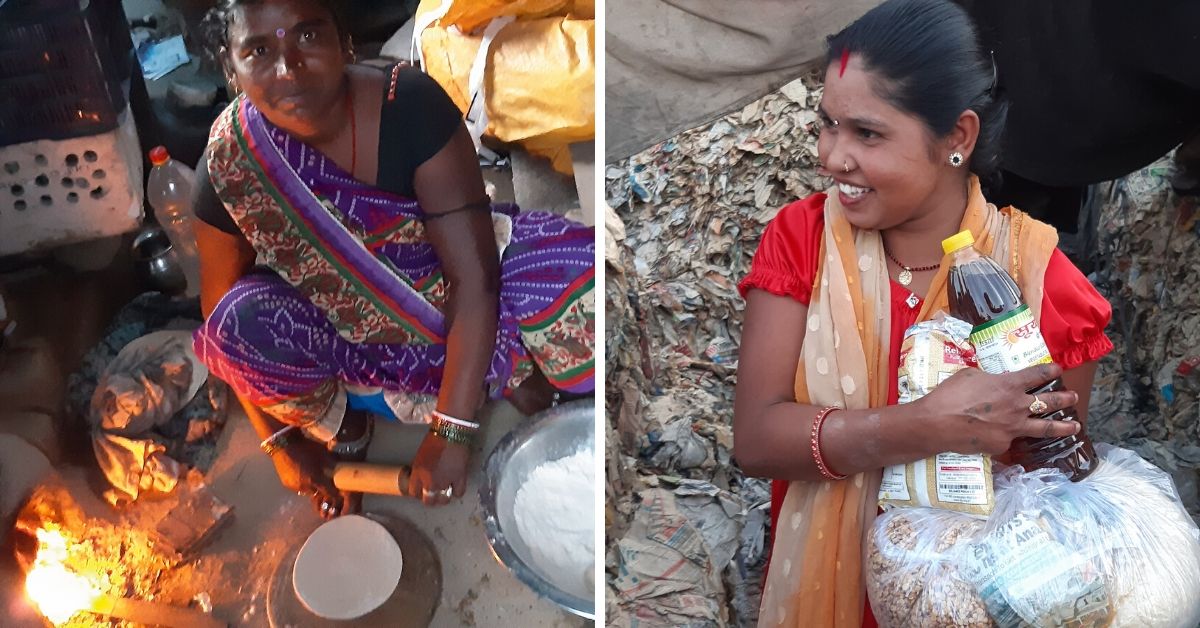
Ragpickers live in temporary sheds in the slum areas of Delhi, Noida, and Ghaziabad. Their work is considered menial, and they are often treated as untouchables by the so-called privileged classes.
Gopal Verma, a volunteer at Atmashakti, sheds light on how discrimination towards ragpickers has created a new narrative.
He says, “It is understood that we all should adhere to isolation and physical distancing, but ragpickers are being abandoned in the name of these practices. Despite their services, they are at the receiving end of hate and dismissal. How can we think of an equal society when the so-called upper layer of the society does not extend the helping hand to the deprived?”
More than 600 ragpicker families in the Sihani slum in Ghaziabad went without help during the lockdown, he adds.
While other informal workers are being helped by youth clubs, NGOs, and charitable organisations, nobody came forward for ragpickers. Various research findings also revealed that ragpickers hail from the poorest and other marginalised communities, which exposes them to the betrayal and ubiquitous social alienation.
No law to favour them
In the absence of a policy for rag pickers in our country, they remain out of the formal employment sector. They toil to keep our cities clean, and yet, have been conveniently forgotten by our policymakers.
“We don’t have an identity in society. As a fallout, our children are denied enrollment in the Anganwadis. Can we not even expect this from the government?” asks 45-year-old Kavita Devi. She resides in Ghazipur while her two children are in Bihar for education.
“As there is no law that favours their concerns, these ‘invisible Indians’ continue to struggle for their survival. We tried to make sure that all ragpickers in these regions receive rations till the lockdown subsides, and they can resume work,” says Neha. She was overseeing the procurement of the relief materials vital for the timely distribution of rations.
The easing of lockdown has a mixed effect. Although many ragpickers have returned to work, waste recycling factories have resumed operations in very few places, causing ragpickers to work at reduced rates. Moreover, middlemen dealers, who purchase the recyclables, have not resumed work in full numbers.
“The ordeals of the ragpickers are acute and multifarious. We are happy that our team could proactively engage with volunteers and solidarity groups to reach them. It is time to bring back their dignity in the society,” concludes Kashyap.
(Written by Nabachannel Kishor and Edited by Shruti Singhal)
Like this story? Or have something to share?
Write to us: [email protected]
Connect with us on Facebook and Twitter.
This story made me
- 97
- 121
- 89
- 167
Tell Us More
We bring stories straight from the heart of India, to inspire millions and create a wave of impact. Our positive movement is growing bigger everyday, and we would love for you to join it.
Please contribute whatever you can, every little penny helps our team in bringing you more stories that support dreams and spread hope.







